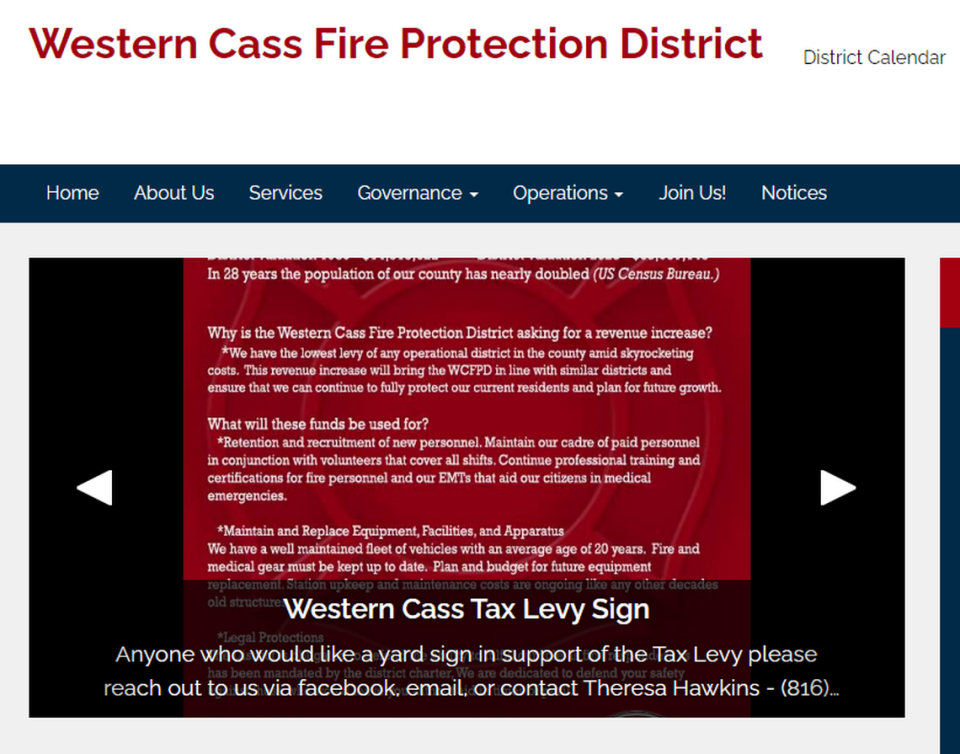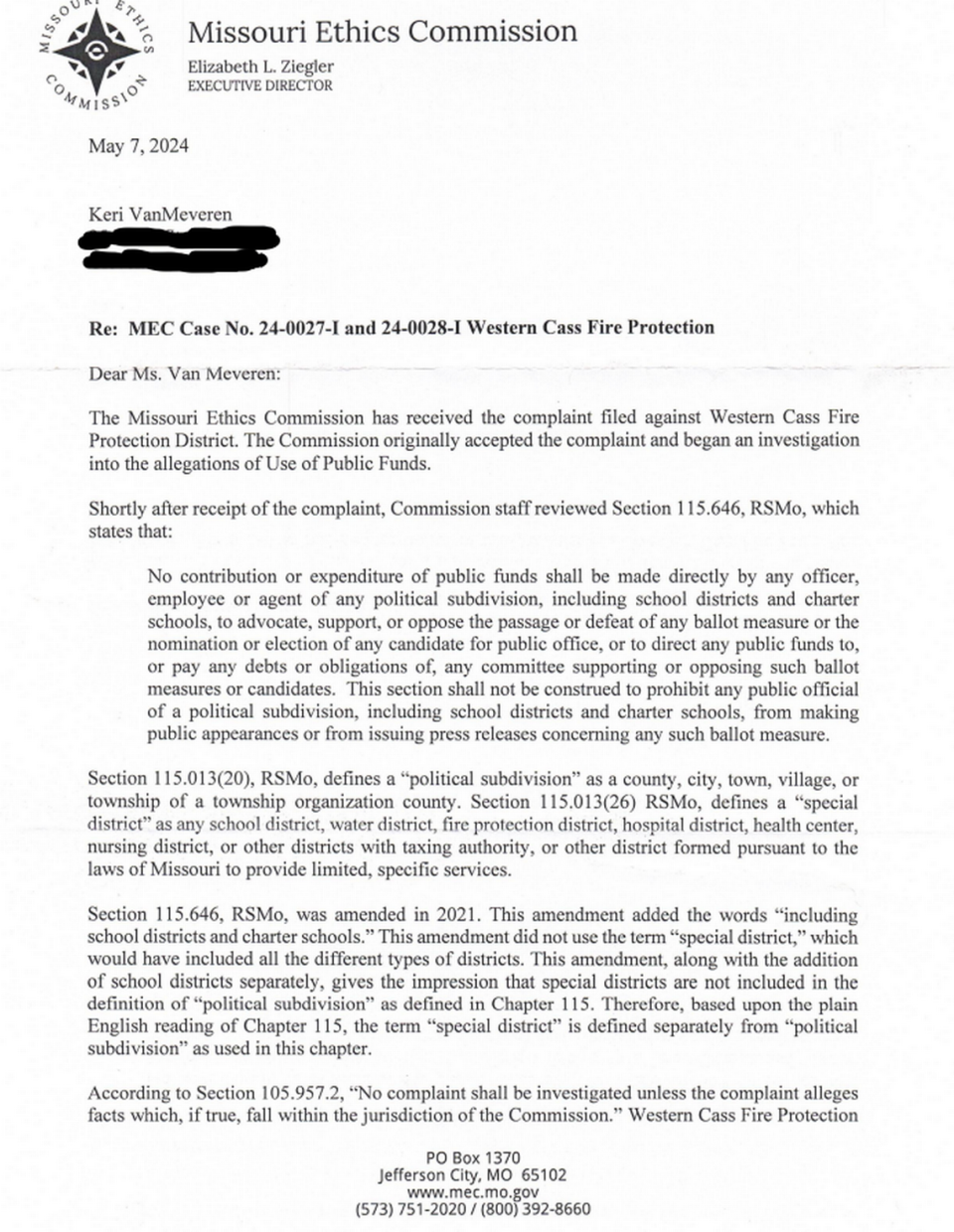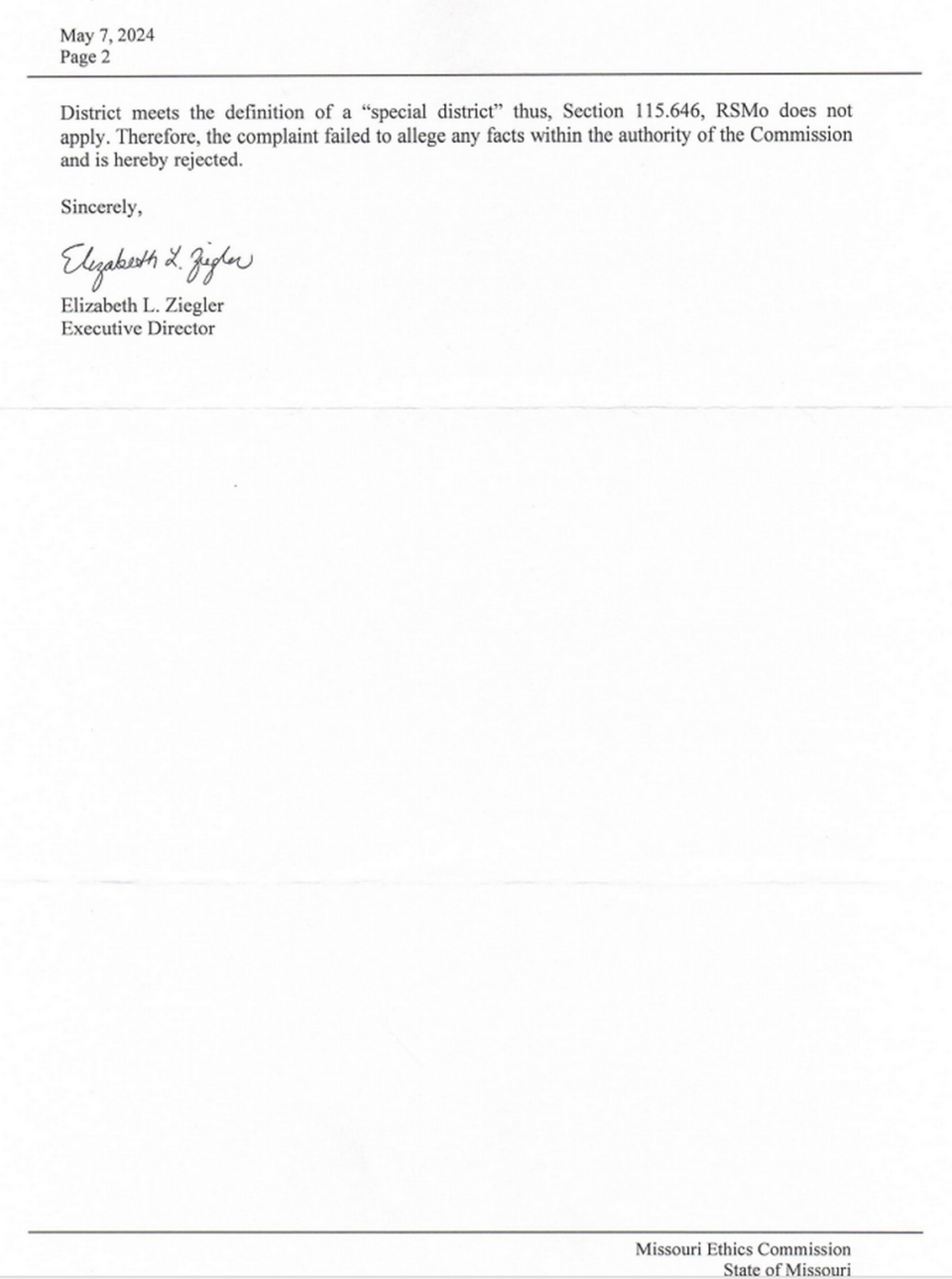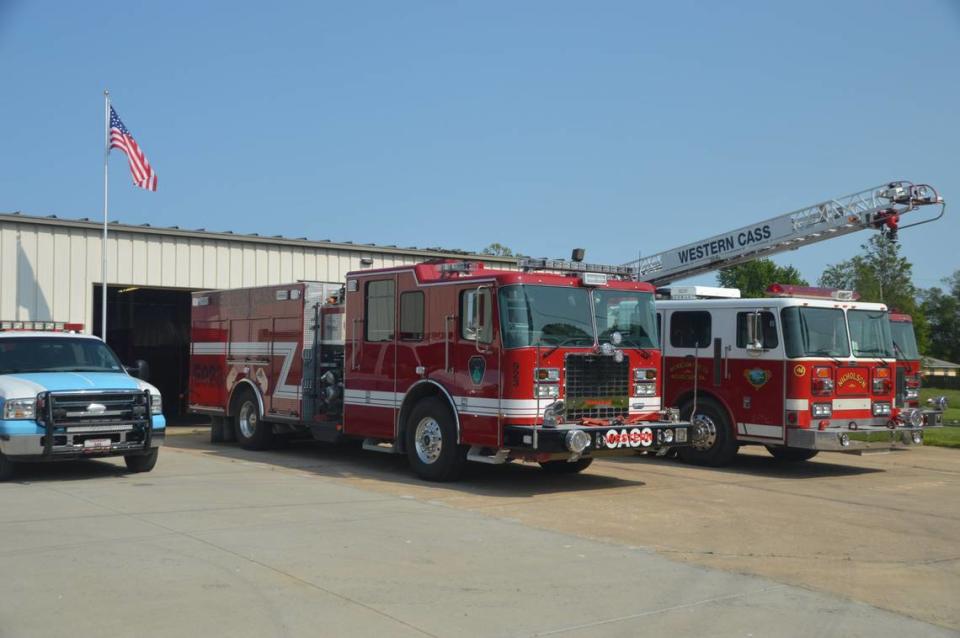Some MO officials exempt from ban on using tax dollars for campaigns, ethics agency says
- Oops!Something went wrong.Please try again later.
Reality Check is a Star series holding those with power to account and shining a light on their decisions. Have a suggestion for a future story? Email our journalists at RealityCheck@kcstar.com.
The Missouri Ethics Commission last week gave tacit approval for some public officials to spend taxpayer dollars on election campaigns, a decision spurring fears of a new “wild west” in election spending.
For decades, Missouri law has prohibited the direct use of public funds to support or oppose any ballot measure or candidate. But following a 2021 change in the law, the MEC is now interpreting the ban in a way that excludes fire districts, hospital districts, water districts, and other special districts that comprise some of the smallest units of government.
The MEC’s interpretation, quietly outlined in a May 7 letter, potentially clears the way for officials in dozens of special districts across the state to harness public funds to influence elections, allowing the government to place its thumb on the scale in campaigns.
Missouri Secretary of State Jay Ashcroft has the power to investigate alleged violations of the ban on using public funds in addition to the MEC. It wasn’t immediately clear on Tuesday whether Ashcroft, a Republican running for governor, shares the MEC’s interpretation of the law.
“As a matter of public policy, we should never have taxpayer money being spent for purely political purposes. That’s just a blanket statement,” said Dave Roland, litigation director at the libertarian-leaning Freedom Center of Missouri.
Still, Roland said the MEC “has got a pretty solid point” in its interpretation of state law.
The portion of Missouri law that bans using public funds applies to officers, employees, and agents of “any political subdivision” and is part of the state’s election law. That law defines political subdivisions to include counties, cities, towns, villages, and townships. The law separately defines special districts.
That distinction, along with a 2021 change to the ban made by the General Assembly, sits at the core of the MEC’s position. Lawmakers that year extended the ban to include school districts and charter schools as political subdivisions – an addition the MEC says “gives the impression” that special districts are not included in the ban.
Elizabeth Ziegler, the MEC executive director, detailed the commission’s position in a May 7 letter in response to complaints made against the Western Cass Fire Protection District. The district provides firefighting services to about 2,500 people across 16 square miles in western Cass County, south of Kansas City, and has been at the center of extensive local controversy.
Ahead of an April vote on a tax levy increase, the fire district’s board of directors approved spending $2,000 on “tax levy promotion.” A photo was also taken showing a “VOTE YES” banner attached to the side of a district fire station. The fire district’s official website also contained instructions for how to request yard signs in support of the tax levy.

Ziegler wrote that the commission was rejecting the complaints because the fire district is a special district, so the ban on using public funds doesn’t apply.
Kerri VanMeveren, a former member of the fire district’s board of directors who is critical of how the district is operated, had submitted the complaints. On Tuesday, she said the fire district “will feel more emboldened” to use limited taxpayer funds to spread what she called misinformation without accountability.
Aaron Racine, an attorney representing the fire district, said the MEC’s position was an accurate reading of the law.
“We’re all sort of hostages to the legislature and when they put words in a statute, we have to follow whatever those words say,” Racine said. “And in this instance, a fire district is not considered a political subdivision.”


The MEC’s letter, coming after the 2021 change in the law, marks a shift in how the commission has interpreted the ban. At least eight times over the past decade, the commission investigated allegations of using public funds made against fire districts, according to documents compiled by Jim Haddock, a Raymore resident who has followed the issue.
Haddock emailed every member of the General Assembly on Tuesday about the MEC letter in an attempt to raise the alarm. He questioned whether lawmakers intended for the ban to exclude special districts.
In theory, a small tweak to the law would ensure special districts are subject to the ban. But in practice, lawmakers are in the midst of the final week of session ahead of a mandatory adjournment on Friday. The Missouri Senate is also at a standstill because of a filibuster over proposed limits to direct democracy in the state.
“Maybe this is overreacting, but I think it’s about to become the Wild West for probably what’s north of a 1,000 special districts in the state of Missouri,” Haddock said in an interview.
Chuck Hatfield, a Jefferson City-based lawyer who previously worked in the Missouri Attorney General’s Office, said he couldn’t say that Ziegler’s analysis of the law is wrong. But he voiced concern about the possibility of government resources being used to affect elections.
“The money that they have belongs to all the taxpayers, both those who support the measure and those who oppose the measure so they need to be using it with their government hat on, not their campaign hat,” Hatfield said.
He added that the “logical extension of what the MEC is saying is you could use fire district money to support candidates for the fire district board.”

While Haddock copied every lawmaker on his email, he addressed it to two Missouri Republican lawmakers who represent Cass County: Rep. Mike Haffner from Pleasant Hill and Sen. Rick Brattin from Harrisonville.
Haffner told The Star at the state Capitol that he planned to dig into the issue Tuesday evening. Amid the final week of the session, he said he was focused on bills that could reach the floor.
“What is written in this email talks about legislative intent, but until I have an opportunity to go back and review the history of how that was added to that section, I can’t comment,” he said.
Brattin’s staff said that he also planned to look into the issue further.

